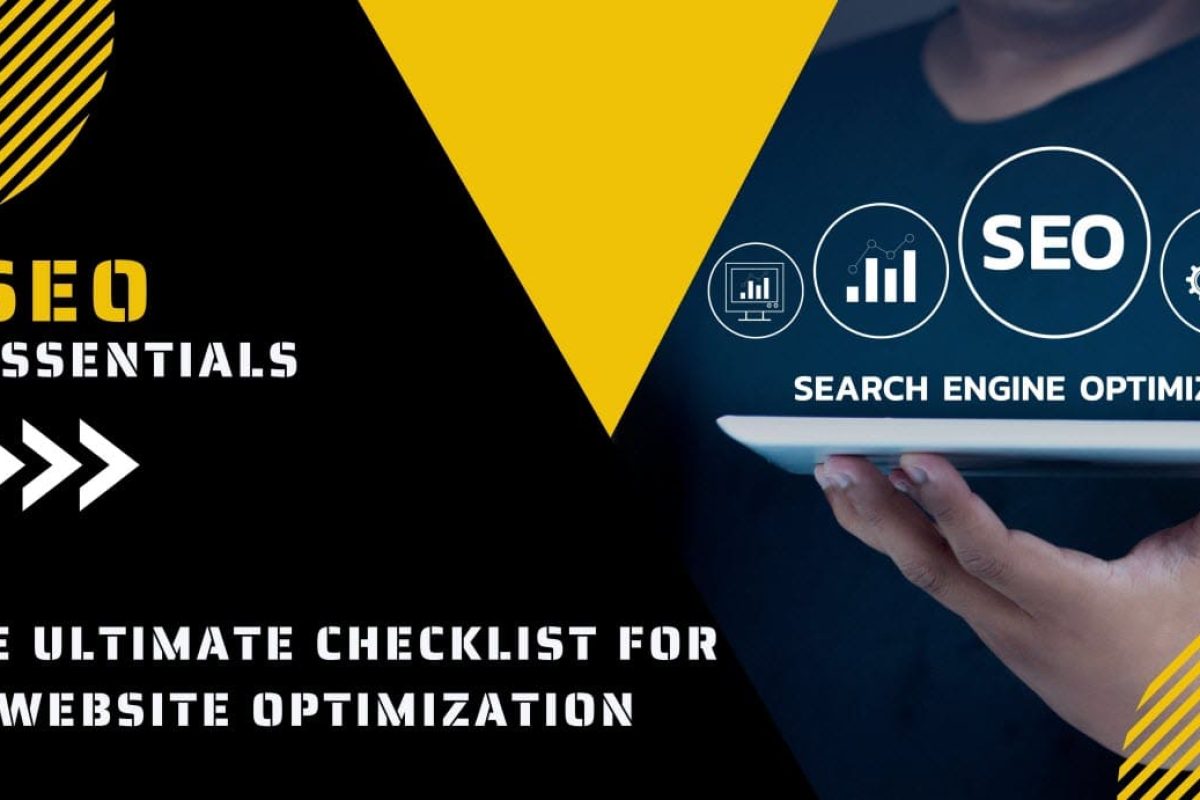In the ever-evolving landscape of online visibility, search engine optimization (SEO) remains a cornerstone for the success of any website. As search engines continuously refine their algorithms, it’s crucial for businesses and website owners to stay ahead by optimizing their digital presence. In this blog post, we’ll delve into the essential components of SEO and provide you with the ultimate checklist for website optimization.
Keyword Research: The Foundation of SEO
Before embarking on any SEO strategy, thorough keyword research is essential. Identify relevant keywords and phrases that your target audience is likely to use in search queries. Utilize tools like Google Keyword Planner, SEMrush, or Ahrefs to discover high-impact keywords.
On-Page Optimization: Crafting SEO-Friendly Content
-
Title Tags and Meta Descriptions: Ensure each page has a unique and compelling title tag and meta description that accurately represent the content and include relevant keywords.
-
Header Tags (H1, H2, H3, etc.): Use header tags to structure your content. The H1 tag should contain the main keyword, and subsequent headers should organize the content logically.
-
Optimized URLs: Create clean and descriptive URLs with keywords where applicable. Avoid using complex strings of numbers or symbols.
-
Keyword Placement: Strategically place keywords throughout your content, but ensure it reads naturally. Overusing keywords, known as keyword stuffing, can harm your SEO.
Content Quality and Relevance
-
High-Quality Content: Develop informative, engaging, and original content. Search engines reward content that provides value to users.
-
Readability: Ensure your content is easy to read with a clear structure. Use short paragraphs, bullet points, and subheadings to break up text.
-
Multimedia Elements: Incorporate images, videos, and infographics to enhance the user experience. Optimize multimedia elements for faster loading times.
Technical SEO: Enhancing Website Performance
-
Site Speed: Optimize your website for fast loading times. Slow websites can lead to higher bounce rates and negatively impact rankings.
-
Mobile Responsiveness: Ensure your website is mobile-friendly. With mobile-first indexing, Google prioritizes mobile-optimized websites in its rankings.
-
SSL Certificate: Secure your website with an SSL certificate to create a safe and trustworthy browsing experience for users.
-
XML Sitemap and Robots.txt: Submit an XML sitemap to search engines to facilitate crawling. Use a robots.txt file to guide search engine bots on which pages to crawl and index.
User Experience (UX)
-
Navigation and Structure: Create a logical and user-friendly site structure. Ensure easy navigation with clear menu options.
-
Internal Linking: Implement strategic internal linking to guide users to relevant content within your website. This also helps search engines understand the structure of your site.
Off-Page Optimization: Building Authority and Backlinks
-
Link Building: Develop a robust backlink strategy by acquiring high-quality, relevant backlinks. Quality over quantity is key, so focus on authoritative sources.
-
Social Signals: Engage with your audience on social media platforms. While social signals don’t directly impact rankings, social media presence can contribute to brand visibility.
Analytics and Monitoring: Measuring Success
-
Google Analytics: Set up Google Analytics to track website performance. Monitor key metrics such as traffic, bounce rate, and conversion rates.
-
Search Console: Utilize Google Search Console to identify crawl errors, index status, and search queries leading to your site.
By diligently addressing each item on this SEO checklist, you’ll lay the groundwork for a well-optimized website that not only ranks higher in search engine results but also provides a superior experience for your visitors. Remember, SEO is an ongoing process, and regularly revisiting and updating your strategy is key to maintaining and improving your online presence.







